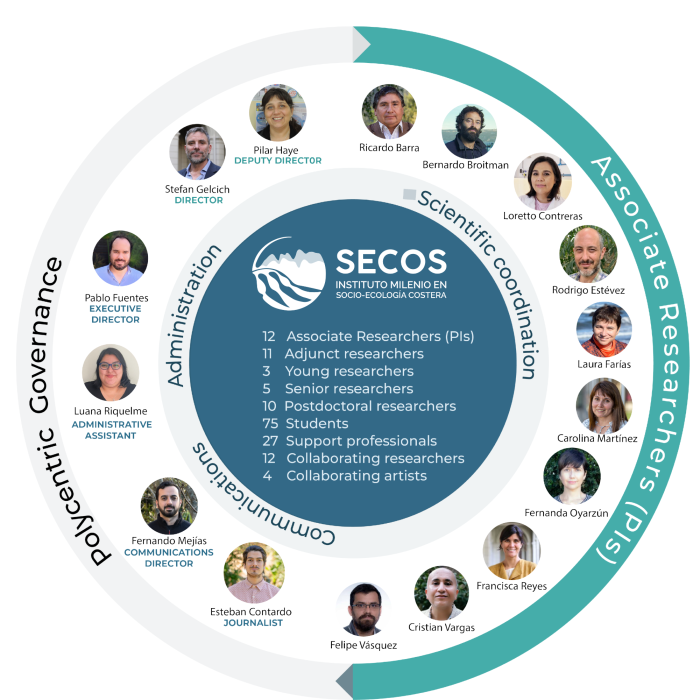
Coastal Social-Ecological Millennium Institute (SECOS)
The Coastal Social-Ecological Millennium Institute (SECOS), created in December 2020, it’s a research center of excellence of the Millennium Scientific Initiative, a program of the National Research and Development Agency (ANID), belonging to the Ministry of Science, Technology, Knowledge and Innovation of Chile.
SECOS proposes a new and innovative way of doing inter-transdisciplinary science, based on the study of small and medium-scale social-ecological systems (SES), understood as learning platforms (LP), which will address fundamental issues of artisanal fishing, shellfish aquaculture and coastal development.
In SECOS converge diverse disciplines, knowledge is co-produced in basic and applied ecology, economics, oceanography, genetics, sociology, public policies, aquaculture, fishing, coastal development, effects of global change, innovation in nature based solutions and art+science, all with a territorial approach.
SECOS Millennium Institute contributes to the coastal sustainability of Chile through cutting-edge research in three key Social-Ecological Systems by understanding global, regional and local drivers of change; the social-ecological conditions that hinder sustainability; and to test and implement actions that unravel these conditions. In addition, it focuses on the co-production of knowledge through sustainable solutions and through work with multiple actors; the strengthening of human resources in science for SES; and the promotion of novel processes of active public participation, through inter and transdisciplinary research.



